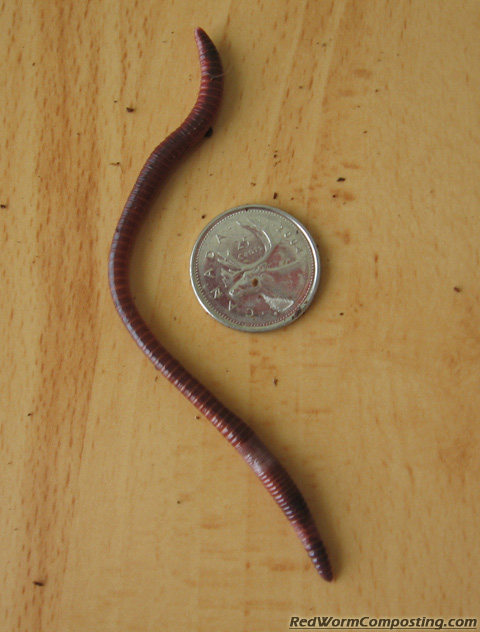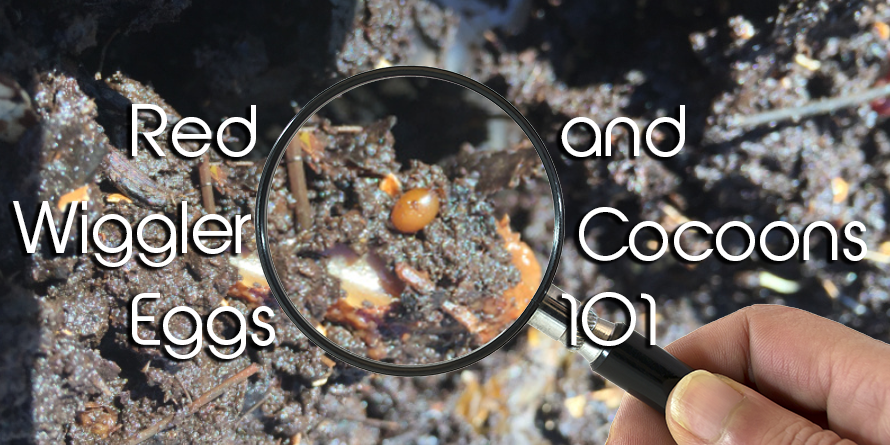Lake Hickory Bait: The Top Spot for All Your Fishing Essentials
Lake Hickory Bait: The Top Spot for All Your Fishing Essentials
Blog Article
Exactly How Red Wigglers Can Change Your Composting Experience
The assimilation of red wigglers right into composting techniques offers a transformative strategy to waste administration and dirt enrichment. These microorganisms not just quicken the decomposition process yet also produce nutrient-dense vermicompost that boosts dirt health and fertility. Their adaptability to different environments makes them a suitable choice for both novice and knowledgeable composters alike. However, understanding the particular needs and advantages related to maintaining a flourishing worm populace is vital for maximizing their potential. What approaches can one use to guarantee an effective vermicomposting experience?
Advantages of Red Wigglers
Red wigglers, medically recognized as Eisenia fetida, are a cornerstone of effective composting systems due to their remarkable ability to decompose natural issue successfully. These worms master changing cooking area scraps, backyard waste, and other natural products right into nutrient-rich garden compost, typically described as worm castings. Lake Hickory Bait. This process not just lowers land fill waste yet likewise adds to lasting horticulture practices
Among the key benefits of red wigglers is their high recreation rate, enabling them to occupy a composting setting swiftly. This fast reproduction improves decomposition prices, leading to faster garden compost manufacturing. Furthermore, red wigglers thrive in a diverse range of problems, making them adaptable to various composting setups.

Setting Up Your Worm Bin
(Red Wiggler Express)To create an efficient worm bin for composting, careful interest must be offered to its style and atmosphere. An ideal worm container ought to be created of materials that are long lasting yet enable needed air flow, such as plastic or timber. The dimension of the bin can vary, however a volume of around 1 square foot per extra pound of worms is an excellent beginning factor.
Make certain that the container has drain openings to avoid water buildup, which can result in anaerobic problems harmful to the worms. Furthermore, including air flow holes will assist keep proper moisture levels and oxygen flow.
Next, it is crucial to give bedding for the worms, which can include shredded paper, cardboard, or coconut coir. This bedding not just offers a habitat for the worms but also help in moisture retention.
Position the worm bin in a place that keeps a temperature array of 55-77 ° F(13-25 ° C) to optimize worm activity. Stay clear of placing the container in direct sunlight or severe temperatures. By adhering to these standards, you can produce a favorable environment for red wigglers, boosting the efficiency of your composting procedure.
What to Feed Your Worms

(Lake Hickory Bait)Red wigglers specifically delight in soft, wet foods like watermelon skins, cucumber peels, and banana peels. It is critical to stay clear of feeding them citrus fruits, onions, and garlic, as these can be detrimental to their health. Furthermore, prepared foods, milk items, and meat needs to be strictly avoided, as they can bring about smells and bring in bugs.
Offering a regular feeding schedule will assist keep your worm populace flourishing while boosting the overall efficiency of your composting initiatives. By understanding what to feed your worms, you lay the groundwork for an effective and lasting composting experience.
Maintaining a Healthy And Balanced Habitat
Developing a flourishing composting atmosphere for red wigglers calls for focus to their habitat, as it straight affects their wellness and efficiency. The excellent environment must preserve a balanced dampness level, normally between 60-70%. Extreme moisture can bring about anaerobic problems, while insufficient moisture may dehydrate the worms.

The bedding material in the compost should vary and shredded, including materials like cardboard, newspaper, and coconut coir. This not just offers a comfortable setting however also offers as a food source. Lake Hickory Bait. Routinely looking for smells or signs of parasites can assist identify prospective issues prior to they intensify
Last but not least, preserving a balanced pH degree, ideally in between 6 and 7, ensures a helpful habitat for red wigglers, cultivating their ability to procedure organic matter properly. By dealing with these variables, you can produce a lasting and efficient composting ecological community.
Harvesting and Utilizing Garden Compost
Collecting garden compost from a worm bin is a fulfilling process that changes organic waste into nutrient-rich have a peek at this site product for yards and plants. This can be done using approaches such as the "light" method, where worms are attracted to light and can be scooped away from the top layers, or by relocating the compost to one side of the container and adding fresh bedding to the various other side, encouraging the worms to move.
Once the worms are eliminated, the staying garden compost can be sorted to get rid of any larger particles or undecomposed material. The end product should have a dark, brittle texture and a pleasurable earthy odor, indicating that it is ready for use. This abundant compost can be applied straight to garden beds, combined right into potting soil, or used as a leading dressing for potted plants. By integrating vermicompost into your gardening techniques, you not only enhance soil fertility yet also promote healthy and balanced plant growth and lasting horticulture methods.
Conclusion
Incorporating red wigglers into composting practices substantially boosts the disintegration process and contributes to the manufacturing of nutrient-rich vermicompost. Their adaptability to various settings and high recreation rates make certain a lasting populace, which successfully damages down natural issue. The resulting worm castings boost soil framework, fertility, and microbial activity, ultimately advertising healthier plant development. For that reason, the assimilation of red wigglers right into composting not only optimizes waste monitoring yet additionally enriches yard communities.
Report this page